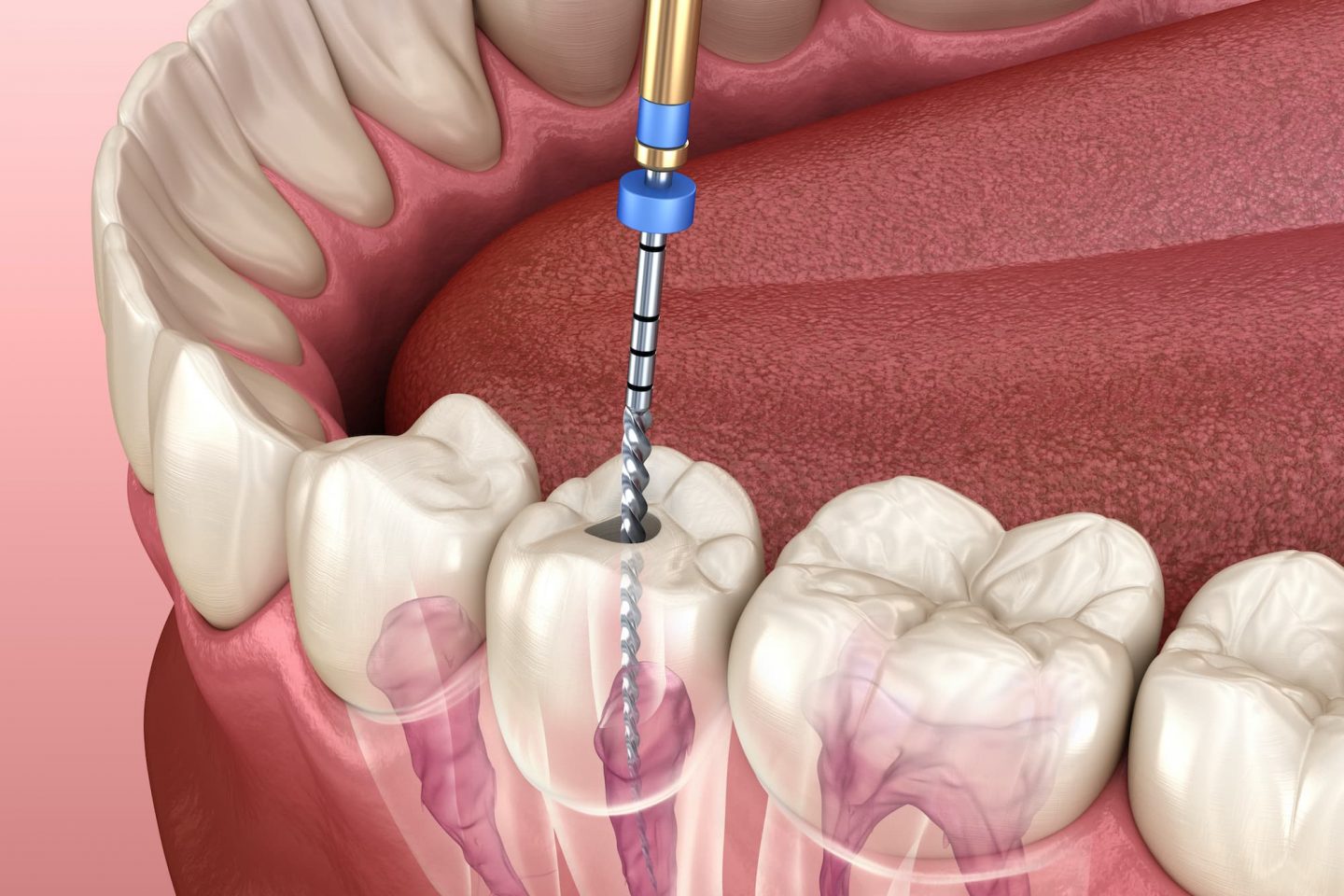A root canal treatment aims to save the tooth. According to the American Association of Endodontists, 59% of people are afraid of root canal treatments. People tend to misunderstand this treatment after listening to the experiences of other people. However, not everything you hear is true. It is important to clear your misconceptions and get your facts straight regarding the pain felt during root canal treatment.
In this article, we will help you understand: “Does a root canal hurt?”

No, a root canal treatment does not hurt. The expected pain during root canal is not felt because of the numbing procedure. The dentist administers sufficient anesthesia to prevent discomfort and ensure a pain-free procedure. To understand the pain factor of a root canal, the dentist needs to inform the patient about all the facts and clear all the myths.
In most cases, root canal treatment does not require the patient to be completely unconscious or asleep. Therefore, local anesthesia is the preferred numbing agent for root canal treatment.
Lignocaine or lidocaine is one of the most common and safest local anesthesia used for this purpose. The amount of anesthesia administered into the patient’s gums for numbing depends upon the age and weight of the patient. Therefore, the dentist gives sufficient amounts to ensure a comfortable procedure.
The dentist employs various ways by which he ensures that the patient does not feel any pain during the root canal treatment. The patient’s comfort is the dentist’s top priority during dental procedures. Let’s look into the following ways which help to keep the pain and discomfort at bay:
In most patients, the dentist does not put the patient to sleep for a root canal treatment. However, sometimes, they have to cater to patients with special needs or medical issues. In such a situation, alternative options for anesthesia need to be considered to ensure a pain-free root canal treatment.
These other options include oral medication before the treatment, general anesthesia, or nitrous oxide. It is recommended not to drive or do any activities that may result in accidents, such as cutting fruits and vegetables, using sharp objects, etc.
In general anesthesia, the patient must be observed for a few hours after regaining consciousness to avoid any future complications.
The patient does not feel pain during the root canal. However, sometimes, patients mistake the mild discomfort felt during root canal treatment for pain. That mild discomfort is of a very minute scale as compared to the pain you face due to the infection.
Such an infection makes eating, sleeping, and even speech difficult. The root canal anesthesia given to the patient counters any discomfort felt during it.
Root canal treatment has multiple advantages and benefits. One of the most prominent advantages of root canal treatment is that it preserves the natural tooth structure. Modern dentistry emphasizes the preservation of the natural tooth structure.
Therefore, it is one last attempt to save it. Now that you have understood, “Does a root canal hurt?” Let’s look into the advantages of root canal treatment.
If you do not get root canal treatment, the infection in your tooth will aggravate. That aggravated infection may cause pain and discomfort. It becomes difficult to eat food and chew properly. Moreover, even minor oral functions like speaking become very difficult. The tooth starts losing integrity and deteriorates.
It becomes feeble to resist any bacterial infection. With time, as the situation worsens, it becomes challenging to save the tooth. The gums depict an inflammatory response and become swollen. The pain may become unbearable. Oral hygiene maintenance via brushing and flossing becomes inconvenient, and surrounding teeth are also affected.
Ultimately, the tooth has to be extracted. Once that extraction site has healed, options like implants, removable dentures, or fixed prostheses can be considered.

This article excels in answering your question, “Does a root canal hurt?” To sum it up, with proper numbing and precautions, a pain-free root canal treatment can be performed. However, a dentist’s expertise and patient’s cooperation are essential factors to ensure its success.
Hesed Dental is a hub of expert dentists who can guide and perform root canal surgery in NJ. If you are still wondering, ‘Does a root canal hurt?’ or require a root canal in NJ, book your consultation today!

Hesed Dental 543 Gorge Road Cliffside Park, NJ 07010
201 941 8877